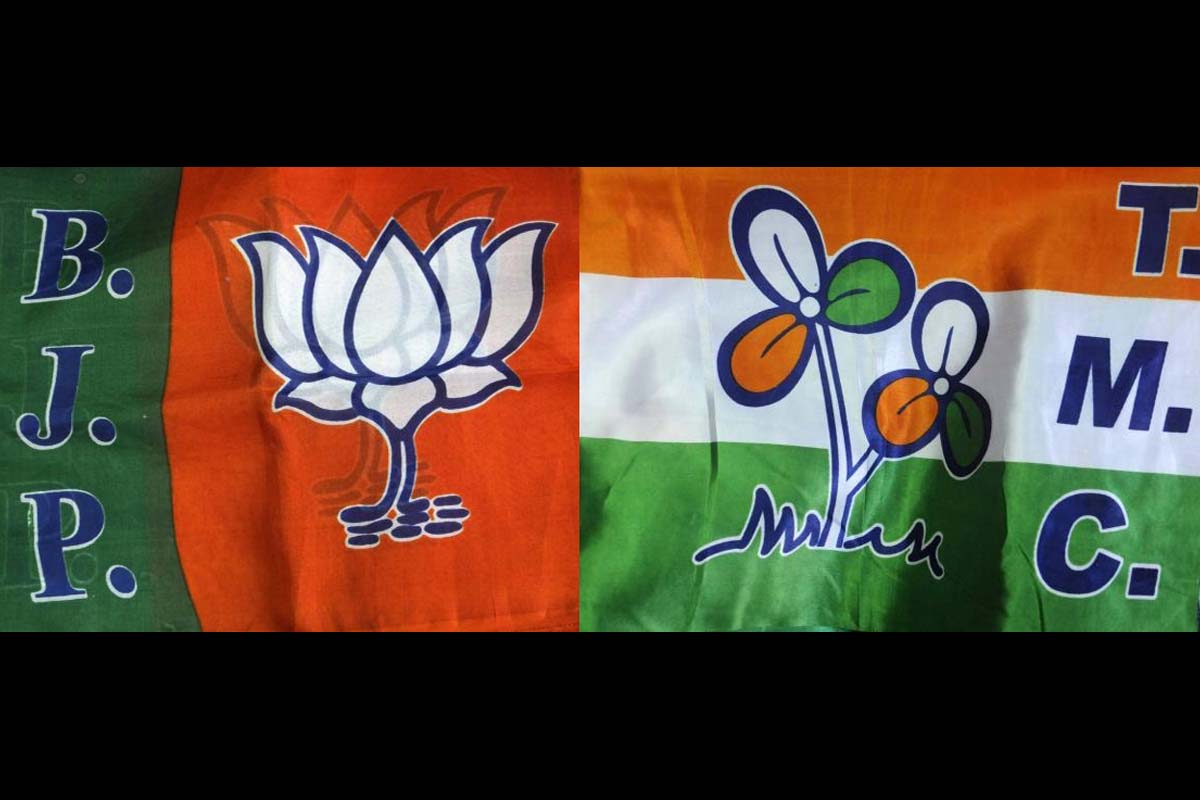BJP indulges in ‘jugaad politics’ to divert attention from burning issues: Mayawati
She said instead of paying attention to public issues, these parties are busy in 'negative politics' with their false propaganda and promises before the elections.
While earlier, the political enmity was by and large black and white with only a few strands of grey here and there, currently the status has changed unequivocally to “it’s complicated” to use social media lingo.

Photo: IANS
Finally, some startling clarity. People of India, especially West Bengal, have been scratching their heads to fathom the current relationship between Trinamul, which is ruling the state, and its rivals CPIM and Congress. While earlier, the political enmity was by and large black and white with only a few strands of grey here and there, currently the status has changed unequivocally to “it’s complicated” to use social media lingo. The current ambiguity has arisen after the three political parties found themselves on the same side when, last year, an all-India alliance was formed in which 26 political parties from across the country decided to join hands to fight the BJP in the ongoing parliamentary elections. The INDIA alliance as it is called, became a point of heated debate as people wondered how three political parties, which have deep roots as far as arch rivalry is concerned, could suddenly bury their ideological hatchets and get together no matter how common the cause is. “The exact equation is really baffling,” said an elderly gentleman at a tea stall where everyday morning walkers gather to discuss the politics of the day, especially during elections.
I had taken the question to the two political parties, CPIM and Congress, which have an ongoing election alliance in the state against Trinamul and the BJP, the common enemy of all three parties. CPIM leader Sujan Chakraborty had explained at that time that the INDIA alliance is a national-level arrangement and not a state-level one. “You have to remember that these are the parliamentary elections, not a local poll. The CPIM and Trinamul’s political rivalry will continue in the state.” Chakraborty explained further that while it is being claimed that CPIM and Congress have joined hands with Trinamul, the reality is that they have just joined an alliance in which Trinamul also happens to be a partner. “There’s a difference between joining hands with Trinamul and being part of an alliance in which Trinamul is also there,” he clarified. Congress’ Adhir Ranjan Chowdhury, too, said that at the local level, the rivalry will continue. The question that came to mind, however, was that though the polls are national, the voting will take place locally. Is an “alliance” not all about seat-sharing so that the three partner parties put up only one candidate against the common enemy? “This is exactly what is meant by the INDIA alliance being a national-level one rather than a state-level one,” explained Om Prakash Mishra, professor of political science and a politician who was earlier with Congress and now with Trinamul. He explains that the Trinamul’s seat-sharing with either Congress or CPIM can actually boomerang because they are traditional political rivals and their joining hands could turn the voters away, and it could even benefit the BJP by default. On the other hand, at the national level, however, there is no restriction on the Trinamul’s decision to support or join a government, as the case may be in the scenario where the INDIA alliance is able to defeat the BJP.
In the last couple of days, however, all ambiguity has been wiped out, with WB chief minister Mamata Banerjee unequivocally telling a massive crowd at an election rally in the villages that she was very much a part of the INDIA alliance at the national level. She also corroborated that the alliance was not applicable at the state level with either CPIM or Congress. Adding more clarity as far as Trinamul’s relationship with the INDIA alliance is concerned, yesterday Congress leader Mallikarjun Karge said that Trinamul, led by Banerjee, was an integral part of the INDIA alliance and even suggested that if his local party leaders at the state level continued with their rivalry narrative, the party “High Command” would not hesitate to distance itself from them. “They can go out if they don’t follow the decision,” he said, while Congress’ state leader, Adhir Ranjan Chowdhury, who has made his rivalry with Trinamul quite clear time and again, said that he would continue to do so.
Advertisement
It is not unlikely, I sense, that while the narratives of both the Congress High Command and the state leader may seem mutually exclusive, this could be political rhetoric, an astute move that could benefit Congress both at the national and state levels. While Chowdhury’s response, stating that his rivalry with Trinamul was crucial for the very existence of Congress in the state, could reassure Congress supporters in the state, Kharge’s declaration is a move that will no doubt strengthen the INDIA alliance’s prospects after the general elections, considering that Banerjee is likely to send to Parliament a large number of MPs. Didi’s support is clearly integral to a strong INDIA alliance. It is as clear as the day.
Advertisement